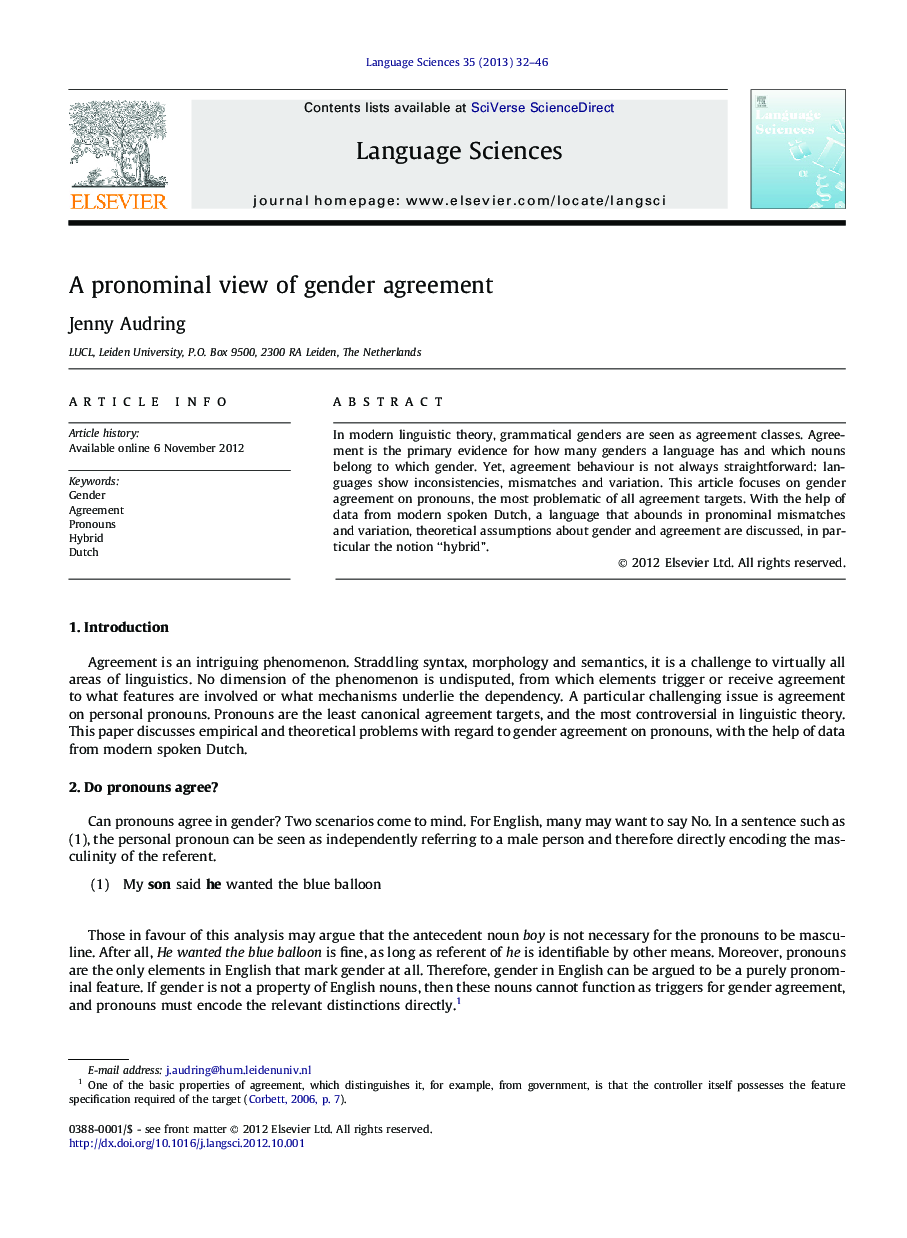| Article ID | Journal | Published Year | Pages | File Type |
|---|---|---|---|---|
| 1103341 | Language Sciences | 2013 | 15 Pages |
Abstract
In modern linguistic theory, grammatical genders are seen as agreement classes. Agreement is the primary evidence for how many genders a language has and which nouns belong to which gender. Yet, agreement behaviour is not always straightforward: languages show inconsistencies, mismatches and variation. This article focuses on gender agreement on pronouns, the most problematic of all agreement targets. With the help of data from modern spoken Dutch, a language that abounds in pronominal mismatches and variation, theoretical assumptions about gender and agreement are discussed, in particular the notion “hybrid”.
Related Topics
Social Sciences and Humanities
Arts and Humanities
Language and Linguistics
Authors
Jenny Audring,
